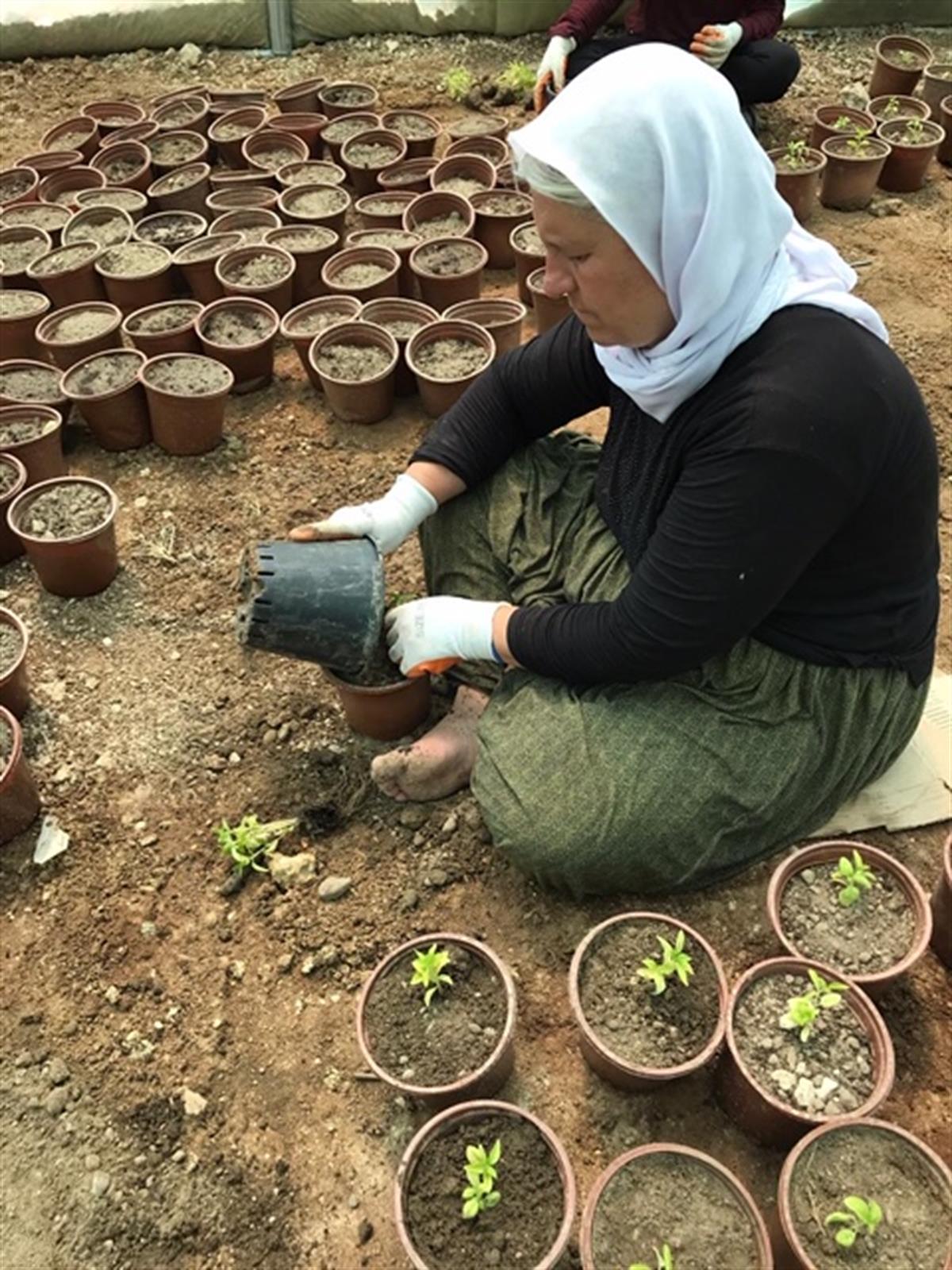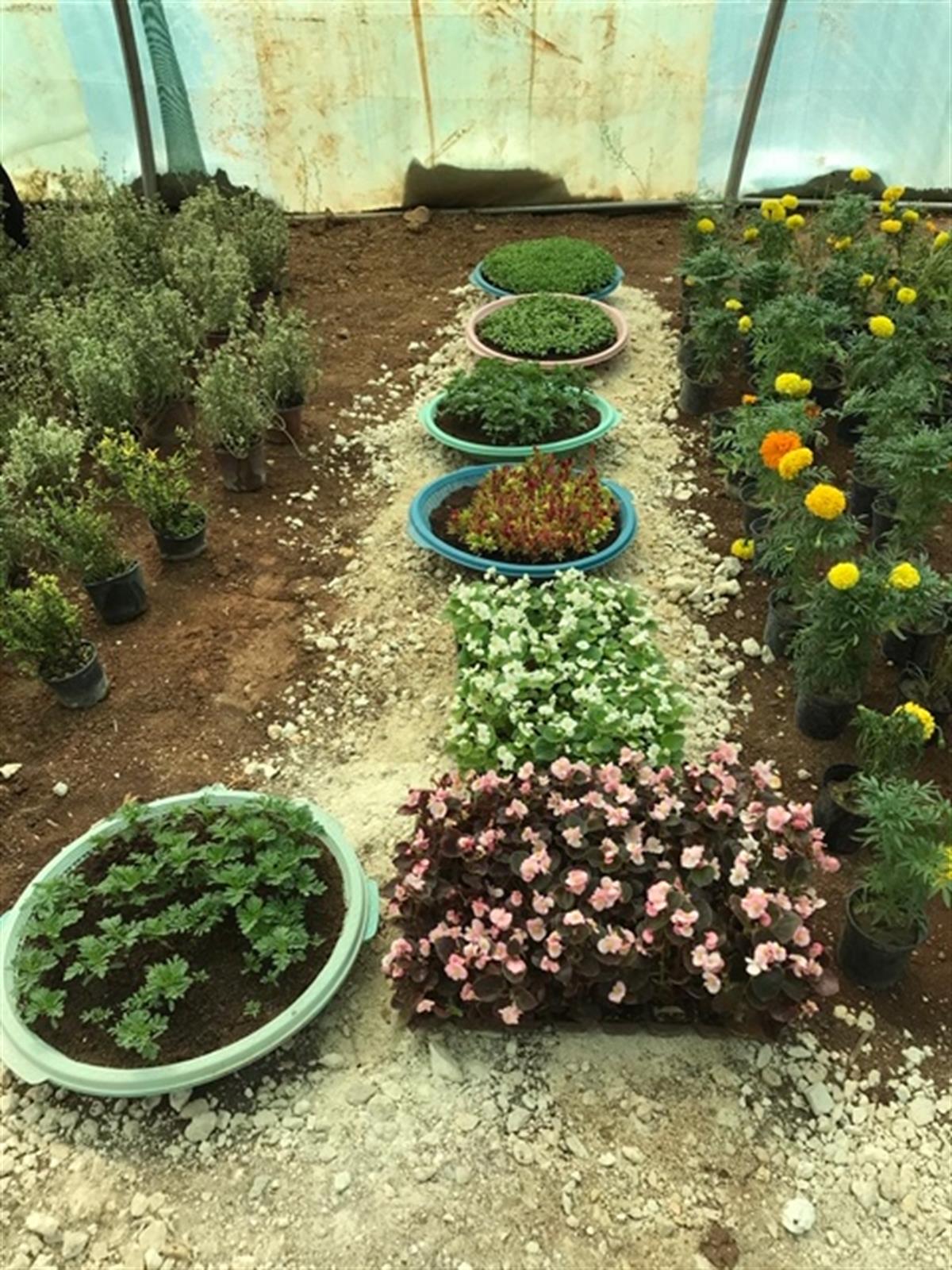With the reduction of the anti-COVID-19 restrictive measures in force in Iraq, the activities temporarily suspended in Iraqi Kurdistan, supported by AICS, have started again. The aim is to launch small economic activities for 380 Yazidis, Syrians, Iraqis and Kurds.
Among them, the construction of greenhouses in the Esyan camp, where thousands of Yazidis who survived the persecutions of the Islamic state live. The activity started at the end of February but was slowed down both by the heavy rains that affected the Duhok area and by the blockade of non-essential work activities in force since mid-March, making it impossible to exploit the two climatically more favorable months for the blossoming of the flowers and the plants.
Since April, it has been possible to resume work and thanks to the cash for work program 41 of the 80 Yazidis involved in the project contributed to the installation of the greenhouses by working four days each. “We had to change the initial project and to make greenhouses suitable for the hot summer heat - explains Giulia Cegani of AVSI Iraq - We added an additional nylon cover and strengthened the irrigation system with autonomous generators that guarantee the pumping of water for irrigation, even when, as often happens, there are blackouts. It's a shame not to have been able to start months ago but while waiting we decided with AICS to redirect a project activity into an awareness campaign on the prevention of the spread of COVID-19 and we distributed hygiene kits to 100 families. Those flowers are really a sign of rebirth".
The first flowers have finally blossomed: 80 women and men from the Esyan camp have started their business, thanks to the seeds and materials supplied by AVSI. In the meantime, plans are underway to start the sales process especially with Duhok flower and plant dealers, thus promoting the development of a local market of products that until now were only imported.


As part of the same project, mushroom production continues, which started in Domiz just before the lockdown. After the partial reopening it was possible to deliver the bags of substrate also to the beneficiaries of the city of Sharya where, despite the high temperatures of this period, the first kilos of mushrooms have already been obtained. Temperatures will rise further but production can continue in the area's natural caves.